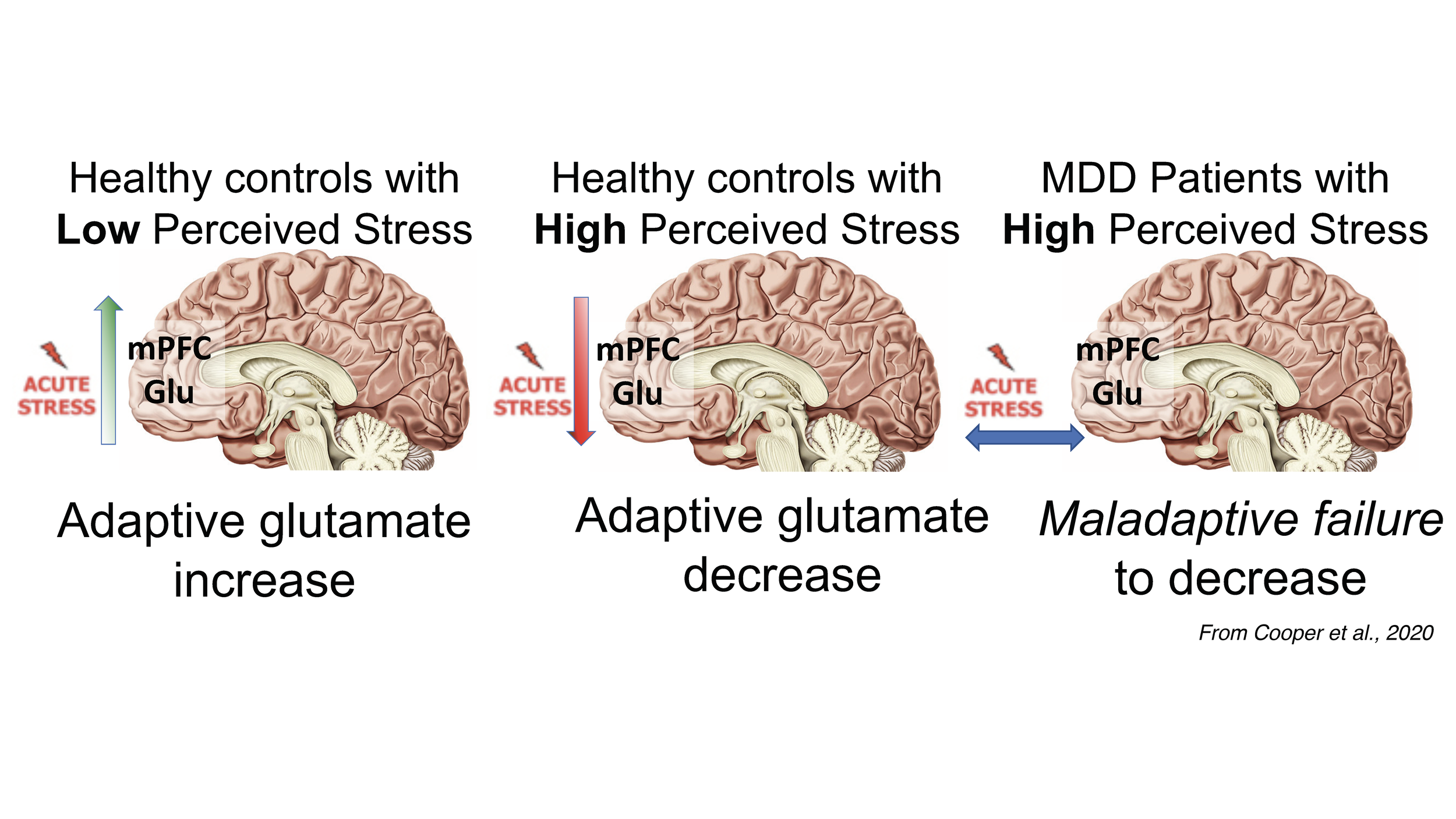Stress, Neuroplasticity, and Reinforcement Learning
A core feature of MDD is reward-processing deficits in the form of decreased reward motivation and anhedonia. Importantly, alterations in prefrontal glutamatergic signaling have been recently linked to the symptom of anhedonia. This cardinal symptom of depression involves deficits in appropriate processing of reward information in MDD, as evidenced by poor reinforcement learning, blunted motivation, and impaired decision-making.
Critically relevant to the proposed research, stress exerts deleterious effects over motivational and reward-processing systems, and can increase vulnerability for the development of reward-linked symptoms such as anhedonia, apathy and addiction. To address the relationship between stress, neuroplasticity and learning behavior, we will use pre and post-stress measures of MR Spectroscopy of medial prefrontal glutamate and GABA in combination with fMRI during a reward-learning paradigm.
Project Funding: NIMH R00 (PI: Treadway)


